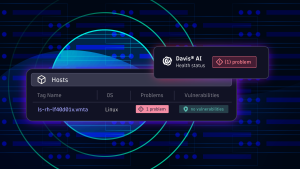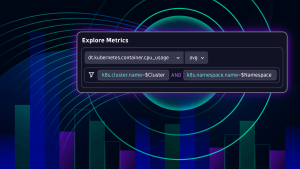With a constantly growing list of supported Operating Systems, distributions, and versions it can be a challenge to keep up with all changes and prepare for related software rollouts and migrations. This blog post serves as a quick guide to our OS support policies.
Are you responsible for deployment of Dynatrace OneAgents, ActiveGates, or Dynatrace Managed clusters? Do you keep an eye on the support of distributions and versions of operating systems within your environment? If so, then this article is for you! In addition to answering basic questions about OS support, this blog post serves as a consolidated reference of all the related publications that we update and publish on a regular basis. With this information, you can find answers to questions such as:
- Which operating systems and versions does Dynatrace support?
- Does OneAgent provide identical capabilities for all supported platforms?
- How often is the list of OneAgent supported technologies and versions updated?
- Where can I learn about ongoing support changes for OneAgent?
- How can I learn about OneAgent de-support plans for specific OS versions?
- What about ActiveGates?
- What about Dynatrace Managed?
Which operating systems and versions does Dynatrace support?
We do our best to provide support for all popular hardware and OS platforms that are used by our customers for the hosting of their business services. Our current coverage of versions, distributions, and platforms is really impressive, though be aware that Dynatrace only tests and provides support for installation of OneAgent on a specific list of systems. The list is constantly being updated as new releases are tested and old releases are deprecated. So, unless you’re using a very unusual operating system, you’ll likely find your environment included on the list of OneAgent-supported technologies.
Does OneAgent provide identical capabilities for all supported platforms?
While this is our goal, there are some differences in support across platforms. Please check our detailed OneAgent support matrix to learn about feature availability on specific hardware and software platforms.
How often is the list of OneAgent-supported technologies and versions updated?
The list of OneAgent supported technologies and versions is updated frequently. We release new versions of OneAgent every other sprint, with around 12 releases per year. Consequently, new platforms and versions are added and removed from the list following the same cadence. Behind the scenes, environment tests are performed on an ongoing basis.
Where can I learn about ongoing support changes for OneAgent?
The best source of information about updates to OneAgent is the OneAgent release notes.
How can I learn about OneAgent de-support plans for specific OS versions?
We track the release announcements of all relevant OS vendors. In the case of versions that have already reached end of life (EOL), we continue releasing new versions of OneAgent for at least six months following the OS’ EOL date. In accordance with our support policy, the last OneAgent version supporting a given OS release is supported by Dynatrace for an additional nine months (12 if you’re a Dynatrace ONE Premium customer). So, in total, you have at least 6 + 9 = 15 months to migrate from unsupported operating systems to newer versions, while retaining full support from Dynatrace.
We communicate our de-support plans well in advance on the End-of-support page in Dynatrace Help, as well as within the release notes. Please make sure to bookmark the End-of-support page and review it on a regular basis to prepare for support changes from Dynatrace.
What about ActiveGates?
We follow a similar pattern of support announcements for ActiveGates.
- ActiveGate release notes are provided on a monthly cadence.
- ActiveGate system and hardware requirements are updated on a constant basis.
- Collection of system de-support plan announcements for ActiveGate is something we’re currently working on; it will be available soon, so please stay tuned.
What about Dynatrace Managed?
If you’re a Dynatrace Managed customer, you also need to install a Dynatrace Managed cluster to store your collected monitoring data, enable automated analysis, and generate notifications related to AI-driven root-cause analysis.
- Dynatrace Managed release notes are provided monthly with each release.
- Dynatrace Managed hardware requirements as well as software requirements are updated on an ongoing basis.
- Similar to ActiveGate, the collection of system de-support plan announcements for Dynatrace Managed is something we’re currently working on and will deliver soon.
Let us know what you think!
As always, we welcome your feedback and comments. Please continue to share your thoughts via Dynatrace Community, in-product chat, or with your Dynatrace Account Manager.





Looking for answers?
Start a new discussion or ask for help in our Q&A forum.
Go to forum